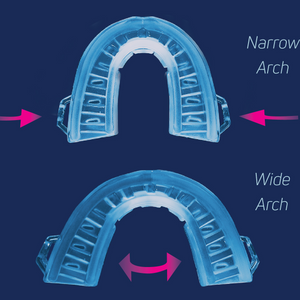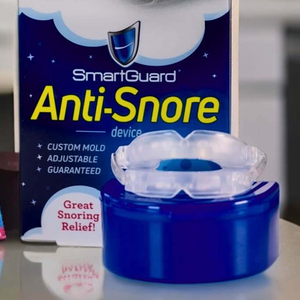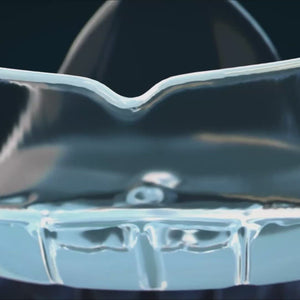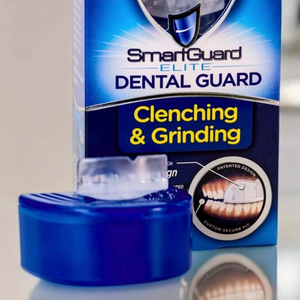Mar 02, 2023
Can TMJ Cause Snoring? (Part 1)
The reality of snoring
Snoring may be a household name, but it can also become a household frustration. Being disturbed by snoring during sleep is aggravating, and you never know if the “disturbee” is going to throw a shoe at the snorer or move to the couch downstairs. But with compassion and creativity, the disturbee can suggest ways to the culprit on how to stop snoring, hopefully before the snoring leads to sleep apnea—the stoppage of breathing—which can be fatal. Let’s first address the many causes of snoring, one of which may surprise you: TMJ (misaligned jaw joint) problems. Then I’ll propose some viable snoring remedies that can improve your sleep, health, and possibly improve your marriage.
Six of the most common causes of snoring
- Weight gain. People who are overweight or who have recently gained weight often experience episodes or snorting and snoring. Remember, fat is not just stored on the belly; it can also invade tissues of the face, mouth, and throat, making a narrower pathway for air. So, recent weight gain is often to blame for the sudden emergence of snoring during sleep.
- Alcohol. In an intoxicated person, the muscles of the throat close faster than in a sober person. The muscles and tissues of the throat become more relaxed, thus narrowing the airway. This causes snoring; and in the case of the habitual snorer, alcohol brings louder snorting and snoring.
- Smoking. The smoke from cigarettes or other smoking devices irritates the lining (mucosal skin) of the throat, often causing an exudate of mucus that narrows the airways.
- Allergies and nasal stuffiness. Whether you’re congested from a respiratory infection or allergies, the airways can be swollen and constricted, making it difficult to breathe freely.
- Sleeping position. When one sleeps on their back, face up, tissues like the tongue tend to rest back toward the throat, narrowing the airway and causing snoring.
- Overbite or malocclusion. When the lower jaw is behind the upper teeth, the tongue is often pressed toward the back of the throat, thus narrowing the airway. An overbite may be anatomical through genetics, formed through thumb-sucking, or result from issues with the jaw joints. This is where TMJ aka TMD (Temporomandibular Disorder) comes in. When the jaw joint is inflamed, it will often be swollen, misaligned, get stuck, click, pop, etc. This adversely affects the function of muscles of the jaw. Conversely, jaw muscles that misfire can cause TMD, so there is a direct correlation between TMJ/TMD and malfunction of the jaw’s muscles. If the misalignment causes an overbite, the tongue can move toward the back of the throat, narrowing the airway; and this is often the culprit in snoring and possibly sleep apnea.
Continue reading with, Can TMJ Cause Snoring? (Part 2) here.








